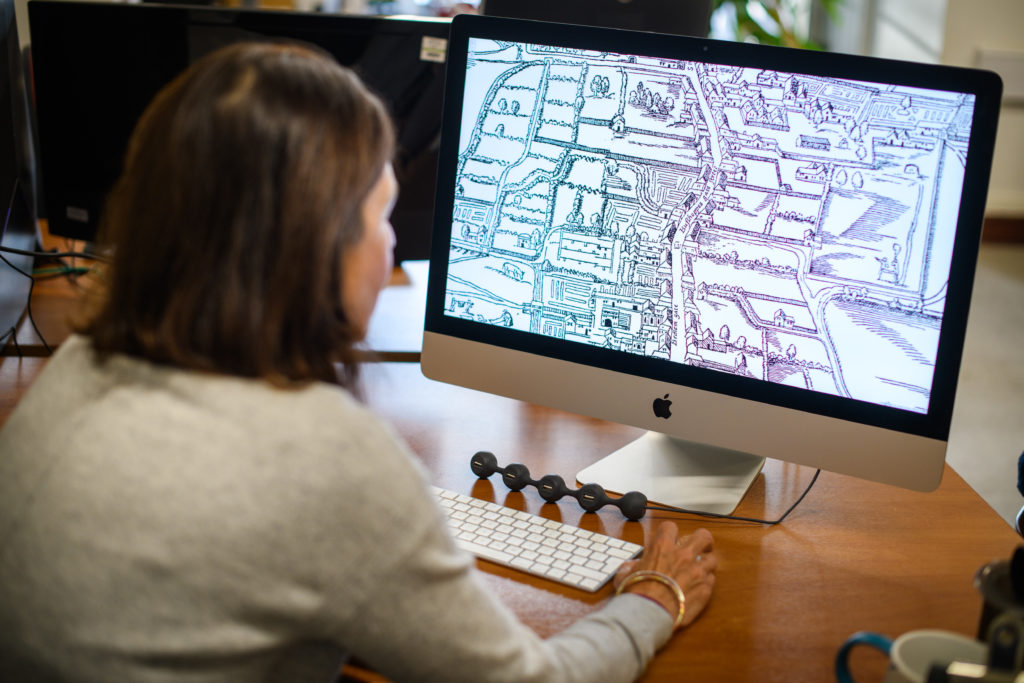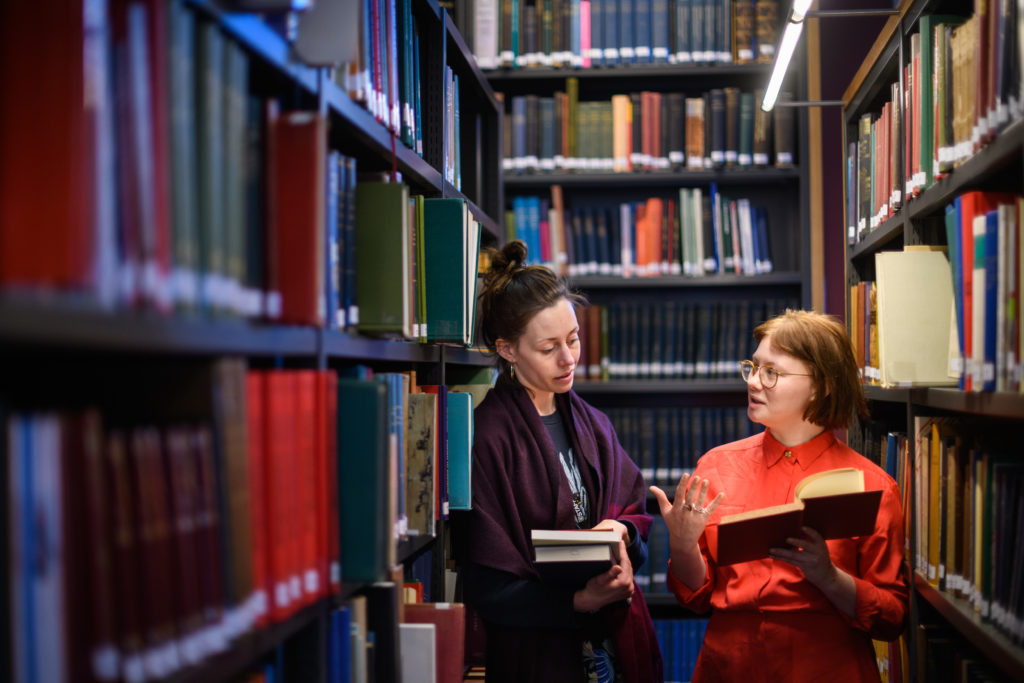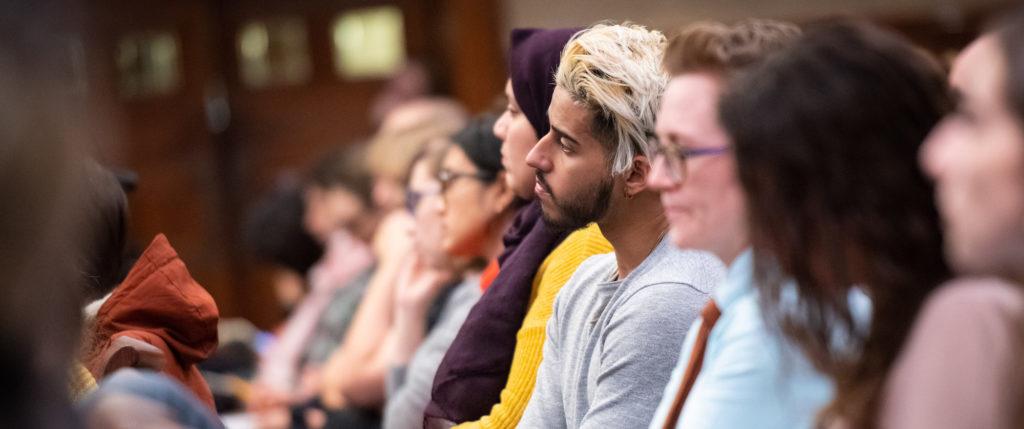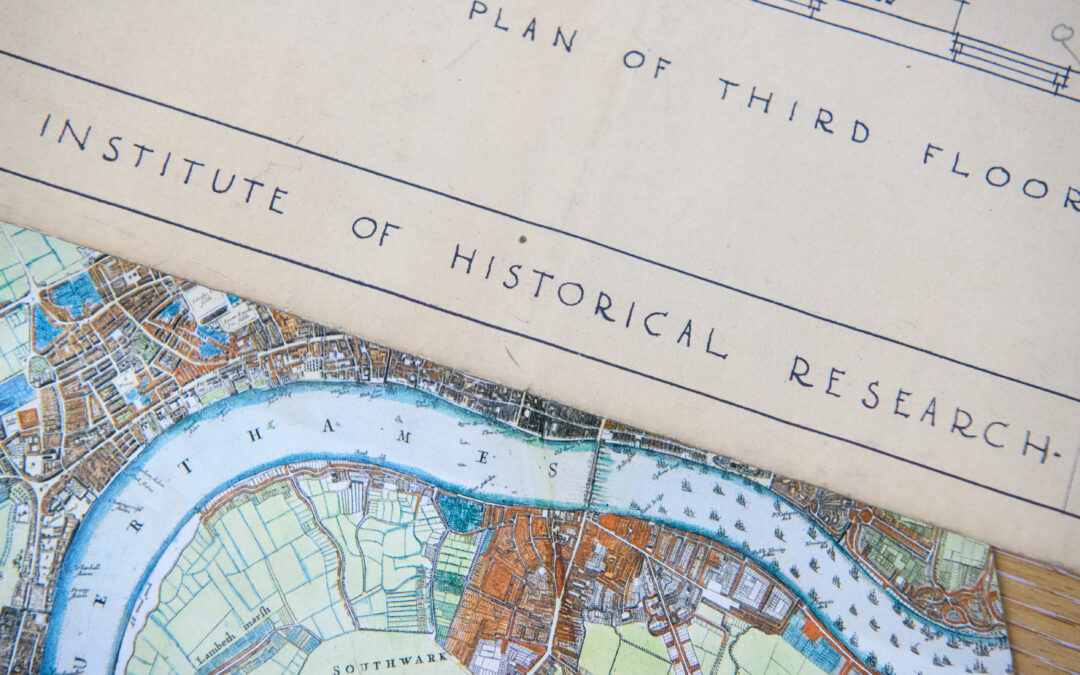Our new MA History Place and Community, launching autumn 2023, will be taught by our expert academic colleagues, alongside guests from other sectors and professional contexts. What are our own IHR / University of London tutors most looking forward to? We asked them to tell us…

Professor Sir David Cannadine
(Former IHR Director; currently Dodge Professor of History at Princeton University, a visiting professor of history at Oxford University, and the editor of the Oxford Dictionary of National Biography; President of the British Academy 2017-2021; broadcaster and author)
The big questions about what history means today, how we do it, and how history can contribute to public life are ones I’ve explored across my career as a historian. I’m looking forward to being part of our conversation about historical approaches and practices in Thinking History.
Dr Justin Colson
(Senior Lecturer in Urban and Digital History)
Across this new MA, we’re going to be using some of the very latest interactive online learning tools. Alongside real-life site visits, we’ll also be able to make virtual field trips together. We’ll analyse sources and documents together online, and contribute to discussions and group projects when it works for us. I’ll also be sharing digital skills for place-based research in the modules Historic Places and also Layers of London: Deep Mapping London’s History—from GIS mapping to network analysis and crowdsourced research on the IHR’s ‘Layers of London’ project model.
Professor Claire Langhamer
(IHR Director)
I’ll be convening the Scoping and Planning module and I’m looking forward to supporting students as they prepare for their Final Projects—whether those are traditional dissertations, placements, or more creative outputs. I think we’re all excited to help students discover the beginnings of research which, for some, might take them into PhDs and beyond.
Ben Rogers
(Professor of Practice, University of London; founding Director, Centre for London think tank; Director, London Research and Policy Partnership)
I’m keenly aware of how history can inform and challenge current place policy. Historical perspectives and methodologies can help us achieve a deeper understanding of communities and identities, and develop participation, engagement, and more sustainable places. In my contribution to Place & Policy, I’ll connect the module’s themes with the real-world challenges and urgent questions we’re tackling in policy formation right now. Where does history make a difference?

Professor Catherine Clarke
(Director, IHR Centre for the History of People, Place and Community)
In our Applied Public History module, I’m really excited to build a community of practice, sharing our different experiences and expertise, as well as our project ideas. I’m also co-convening Connecting History, which I think does really important work in equipping students with skills to do history—in various different ways and contexts—professionally. I’m particularly looking forward to learning from our expert contributors, doing history across academia, the heritage sector, the media, and beyond. Pathways to making a difference in the real world is what it’s all about.
Dr Adam Chapman
(General Editor, Victoria County History of England; Lecturer in Medieval History)
Founded in 1899 and still going strong, the Victoria County History of England is one of the greatest place-based research projects in the world. It’s a project rooted in communities and local history, which celebrates the unique history of every place, from the earliest times to the present day. A day in my role as VCH General Editor might see me analysing entries from the Domesday Book, researching Butlin’s holiday camps, or out meeting research partners in grand historic buildings or village halls. All skills I’m looking forward to putting to use in Historic Places: Landscapes, Buildings, and Significance.
Kate Wilcox
(Library Services Manager, IHR Library)
The whole IHR Library team has been involved in developing this MA from the start, and we’ll be playing a key role in supporting students, both here in the Institute building and remotely. Our IHR Library collections have unique strengths in placed and local histories, and students are members of Senate House Library too. Most of all, we’re looking forward to providing bespoke research support for each and every student, and seeing their MA journeys unfold.
Professor Philip Murphy
(Director, History & Policy)
For me, Place & Policy is an opportunity to mobilise many of the networks and resources of History & Policy—a national network based here in the IHR. In the module, we’ll tackle issues from regulatory contexts for heritage conservation and planning, through to the ‘Levelling Up’ agenda and beyond. As director of a current AHRC-funded project on ‘The Windrush Scandal in a trans-national and Commonwealth context’, I’m particularly interested in exploring the involvement of minority and diaspora communities in place-based heritage, and in interrogating the current political discourses around interpreting ‘difficult’ heritage, such as sites with links to colonialism and slavery.

Dr Ruth Slatter
(Lecturer in Historic Environment and Knowledge Exchange Manager)
I’m excited to see the kinds of Final Project placements students take up, working with our networks and partners across the UK. It’s been great to have so many placement proposals from our partner organisations, where students will be focused on a real-world task—for example in the heritage sector, archives, or on particular projects.
Neil Stewart
(IHR Head of Library and Digital)
The IHR is uniquely well placed to serve students working remotely as we’ve always had a national mission to support and promote history, and this shapes everything we do. As well as our physical Library collections, we’ll help students make the most of our extensive digital resources, including British History Online and the Bibliography of British and Irish History.
Dr Simon Trafford
(Lecturer in Medieval History, IHR Director of Studies, and Director of the School of Advanced Study Doctoral Centre)
As IHR Director of Studies, it’s been a long but hugely rewarding journey to co-ordinate development of this exciting and innovative MA programme. I’m looking forward to welcoming our first students in autumn 2023. Then, in autumn 2024, we hope to roll out most of the MA modules as individual micro-credentials, making them accessible to even more people as continuing professional development and research training qualifications.
Learn more about the IHR’s new MA History Place and Community, make an enquiry, and submit your application here.

